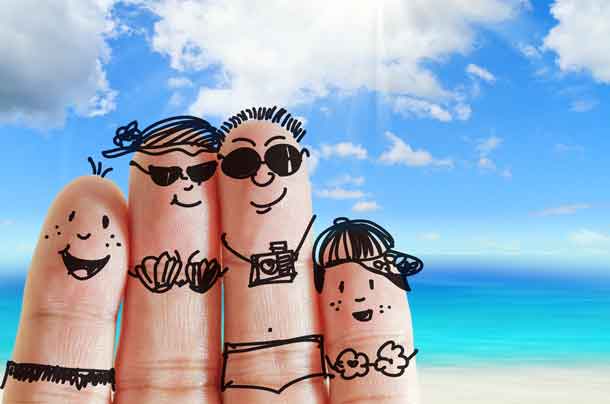In early January of 2020, the United States began to impose travel bans, prohibiting Chinese travelers from crossing the US border. By December, almost half of the world’s countries started to enforce stringent travel restrictions to slow the coronavirus’s spread and successfully flatten the curve. Once celebrated for their appeal to tourists, countries like the United Kingdom and the U.S. earned a spot on Canada’s and the European Union’s travel blacklist.
Still, those individuals suffering from severe cases of wanderlust can find destinations where they can safely visit. While exercising precaution, adventurers can take advantage of record low travel deals and airfare.
Vacations also provide much-needed stress relief for those vacation-goers who have endured this particularly challenging year. Indeed, many studies have noticed a traceable link between routine travel and a reduced risk of cardiovascular disease. Additionally, jetting off to an exotic location miles away from the stresses of impending deadlines can alleviate the effects of depression.
Of course, travel also increases your chances of transmitting and spreading COVID-19. Activities involved in vacationing, such as the use of shared restrooms and public transportation, may expose you to high-touch points proven to increase your risk of contracting the coronavirus.
To steer clear of the virus’s potentially life-threatening side effects, many travel enthusiasts have pushed back or canceled vacations scheduled pre-COVID-19. With airplane seats and hotel rooms emptying at rapid speeds, the COVID-19 pandemic has inflicted extensive damage to the world’s tourism industry and those who rely on it for their survival. As the virus continues to spread throughout the global community, the future of travel becomes progressively somber.
How travelers can responsibly venture during the COVID-19 era
Experts advise that adventure enthusiasts hoping to cure their severe cabin fever take the specified precautions to flatten the curve. As you plan a trip, avoid peak travel times when public spaces are bound to be busier. Peak travel times typically coincide with holidays, weekends, and rush hour.
Those unwilling to reschedule their exotic vacations should also stock up on masks and hand sanitizers before calling a ride-share service headed for the airport. A good rule of thumb is to wash and disinfect your hands between each building you enter throughout the day. When traveling to far-off destinations, research the infection rates in the area and get tested before, during, and after your vacation.
Considering the high risk of transmission associated with transportation, perhaps take an extra step and ship your vehicle to your vacation spot of choice. This unconventional solution to taxis and bustling public transportation provides substantial protection and control. Visiting sites like www.guardianautotransport.com and booking auto transportation services allows you to safely and efficiently ship your vehicle wherever you wish to wander.
Effects of COVID-19 on the airline industry
As high-risk populations seek refuge in their COVID-free apartments and houses, airplane ticket sales have plummeted during the siege of coronavirus. Due to international travel restrictions and the public’s hesitancy to fly, airlines have lost 55% of their revenue and laid off countless valued employees. Despite massive financial aid efforts and travelers’ gradual return, the aviation industry will likely require years to recuperate.
The hotel industry and the novel coronavirus
Without a dependable influx of vacationers, the hospitality business is suffering. High occupancy rates and thin margins have created a doomsday scenario for many hotels. Even as many resorts introduce heightened cleaning measures, most people aren’t ready to trust these formerly germ-infested public spaces. Interestingly, research shows that luxury hotels are experiencing more difficulties bouncing back than economically-priced lodging.
Countries taking the hardest hit
Global communities that heavily depend on travel revenue were devastated almost overnight. Mexico’s economy relies on tourism for nearly 16% of its GDP. Amidst COVID-19 complications, Italy and Spain fall closely behind in their economic losses, and strict lockdowns have dissuaded thousands of travelers. While declining tourism rates have less severely impacted the United States’ economy, as of recent stats, over 17 million people have lost their jobs in the industry.
The road to normalcy
The recovery of global tourism will be a long and arduous journey. Increased sanitation efforts and occupancy regulation is the first step to convincing hyper alert travelers.
Experts project domestic travel to return quicker than international travel. However, a complete rebound may take years. In an optimistic scenario, the tourism industry could fully return by 2023, whereas more pessimistic industry experts forecast a much slower readjustment. Despite these solemn statistics, the world will keep turning, and eventually, COVID-19 will be an absurd exchange shared by mask-less airplane passengers.







